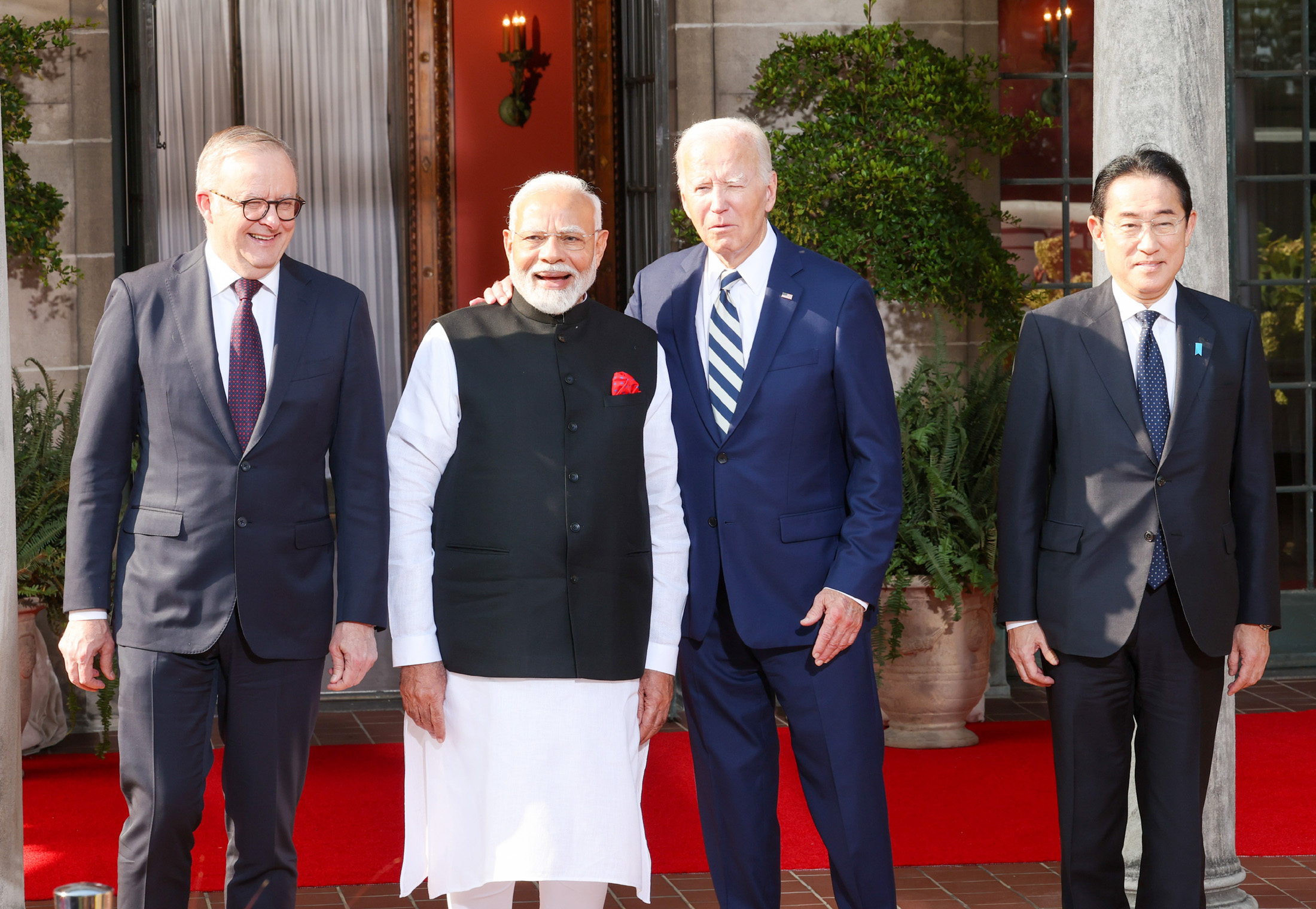
Leaders at the Quad Leaders Summit in Wilmington, USA.
Wilmington: The Quad countries – the United States, Australia, India, and Japan – have launched a ‘Cancer Moonshot Initiative’ to reduce the burden of cancer in the Indo-Pacific region.
The groundbreaking effort is to help end cancer in the Indo-Pacific, starting with cervical cancer, a largely preventable disease that continues to be a major health crisis in the region, and laying the groundwork to address other forms of cancer as well.
Cervical cancer, while preventable through vaccination and usually treatable if detected early, remains the third leading cause of cancer deaths among women in the Indo-Pacific region. Fewer than one in 10 women in the Indo-Pacific have completed their human papillomavirus (HPV) vaccination series, and fewer than 10% have undergone recent screening.
Through this initiative, Quad countries will work to address these gaps by promoting HPV vaccination, increasing access to screenings, and expanding treatment options and care in underserved areas. Quad countries intend to continue their commitments to Gavi including with HPV vaccines in the Indo-Pacific, with the United States making an early pledge of at least $1.58 billion over five years. (Gavi is an international organisation bringing together public and private sectors with the shared goal of saving lives and protecting people’s health by increasing the equitable and sustainable use of vaccines).
In addition, Quad countries will work together with United Nations agencies on bulk purchasing of HPV diagnostics to bring down the cost of cervical cancer screening and work with the International Atomic Energy Agency (IAEA)to improve access to and quality of medical imaging and radiation therapy.
Cancer continues to be a major health crisis in the region, and this initiative is part of a broader set of announcements made at the Quad Leaders Summit. The Quad Cancer Moonshot will serve to strengthen the overall cancer care ecosystem in the Indo-Pacific by improving health infrastructure, expanding research collaborations, building data systems, and providing greater support for cancer prevention, detection, treatment, and care.
Many countries in the region face challenges related to healthcare access, limited resources, and disparities in vaccination rates.
Now, the U.S. National Cancer Institute (NCI) intends to expand its support as a leading funder of global cancer research and global cancer research training in the Indo-Pacific region. This portfolio currently includes nearly 400 active projects involving investigators and institutions in South Asia, East Asia, and the Pacific, including major investments specifically focused on testing cervical cancer vaccination, screening, and treatment interventions and strategies that can meet the needs of women and girls worldwide.
India will share technical expertise in digital health through its National Non-Communicable Disease (NCD) portal. As part of its $10 million commitment to support the World Health Organization (WHO) led Global Initiative on Digital Health, India will provide technical assistance to the Indo-Pacific region. This includes offering technical support for the use of its National Non-Communicable Disease portal, which tracks long-term data on cancer screening and care.
India commits to providing HPV sampling kits, detection tools and cervical cancer vaccines worth $7.5 million to the Indo-Pacific region.
Australia will expand its total funding to the Elimination Partnership in the Indo-Pacific for Cervical Cancer (EPICC) consortium to AUD 29.6 million, through the Australian Government and philanthropic contributions.
Japan intends to strengthen its capacity for addressing cancer including cervical cancer in the Indo-Pacific region by health system strengthening. Japan will also continue to support combatting cancer including cervical cancer in the region through National Cancer Center Japan’s partnership with each Quad country’s cancer-related institution.
By working together, the Quad aims to implement innovative strategies to prevent, detect, treat and alleviate the impact of cancer on patients and their families. Quad partners also intend to work, within respective national contexts, to collaborate in advancing research and development in the area of cancer and to increase private sector and non-governmental sector activities in support of reducing the burden of cervical cancer in the region.
– global bihari bureau




